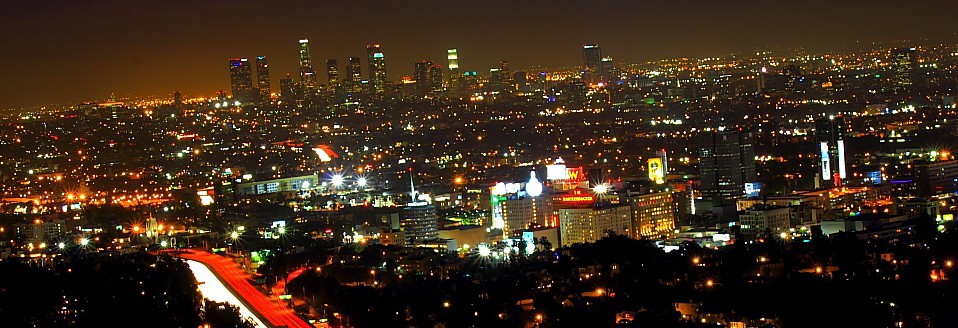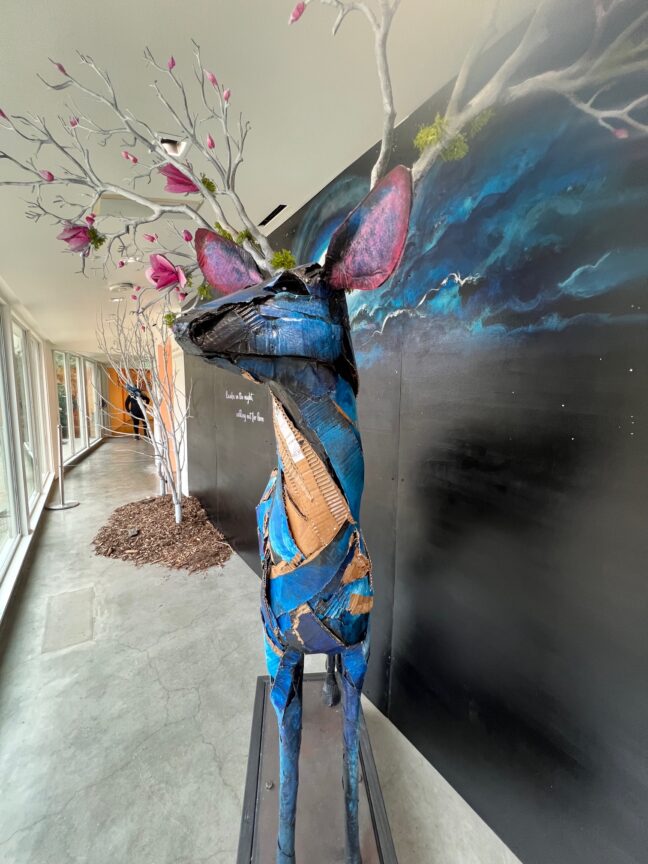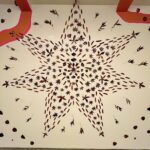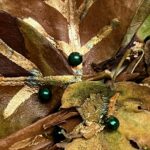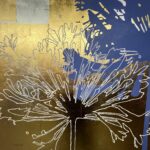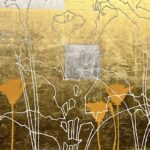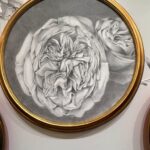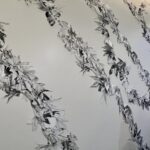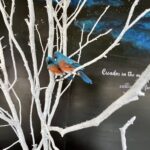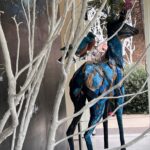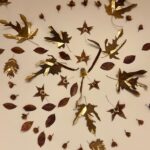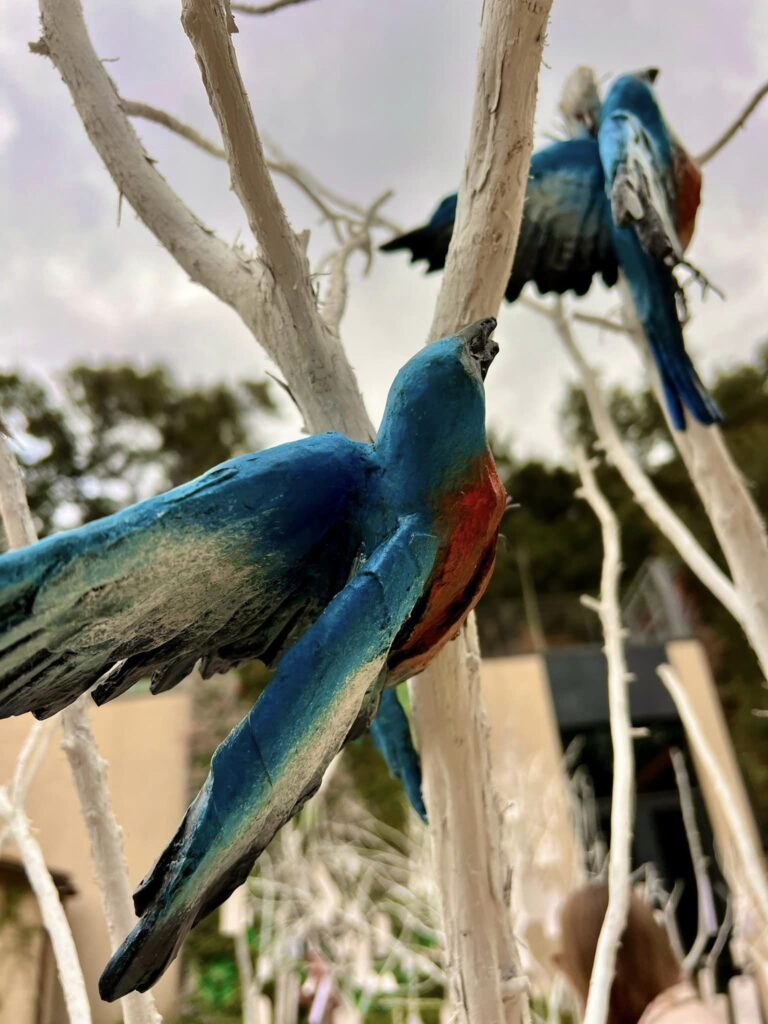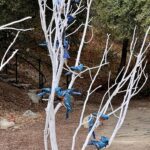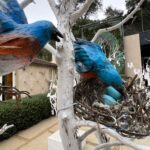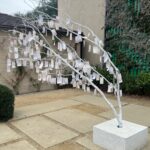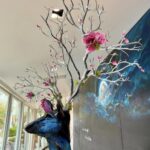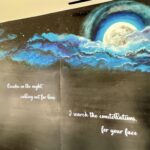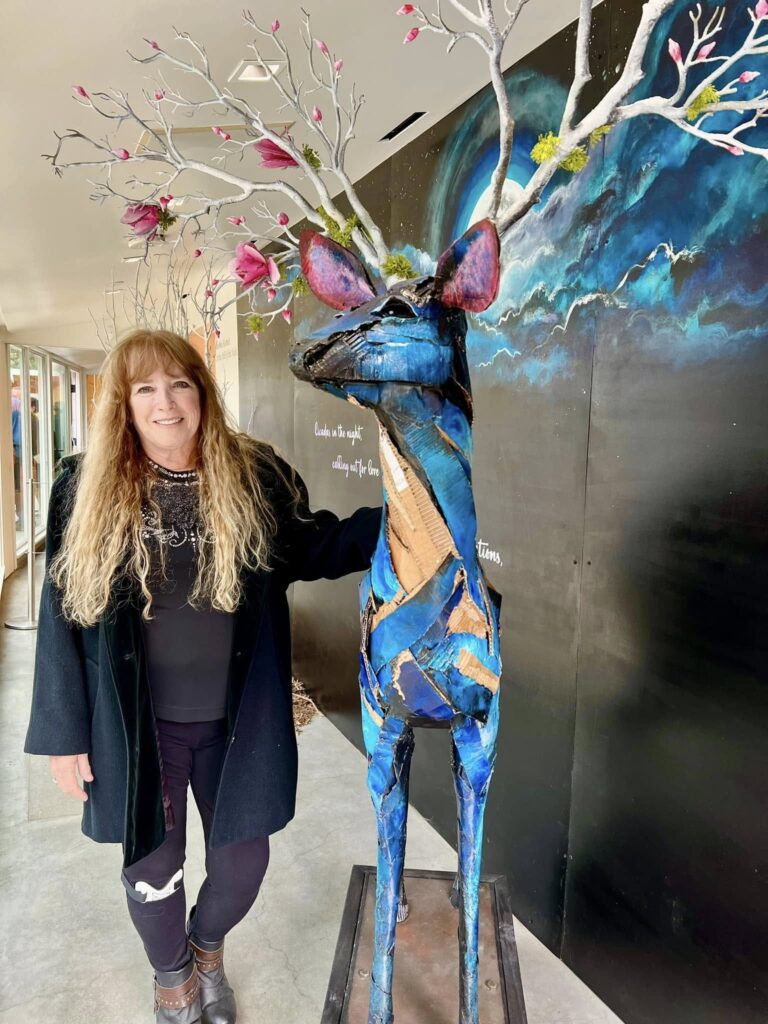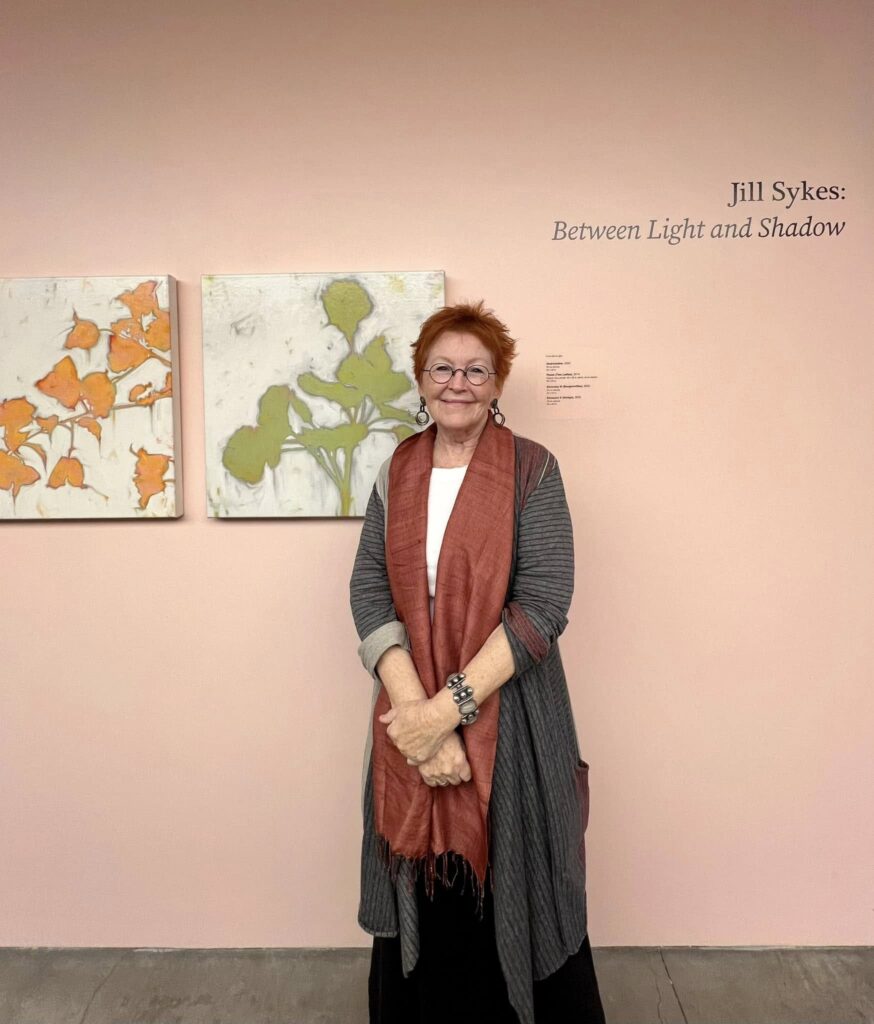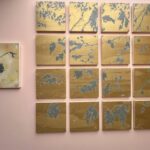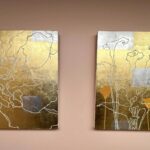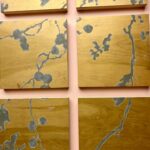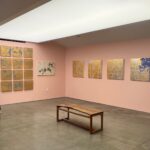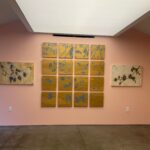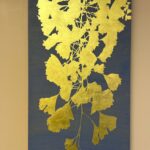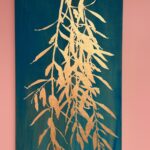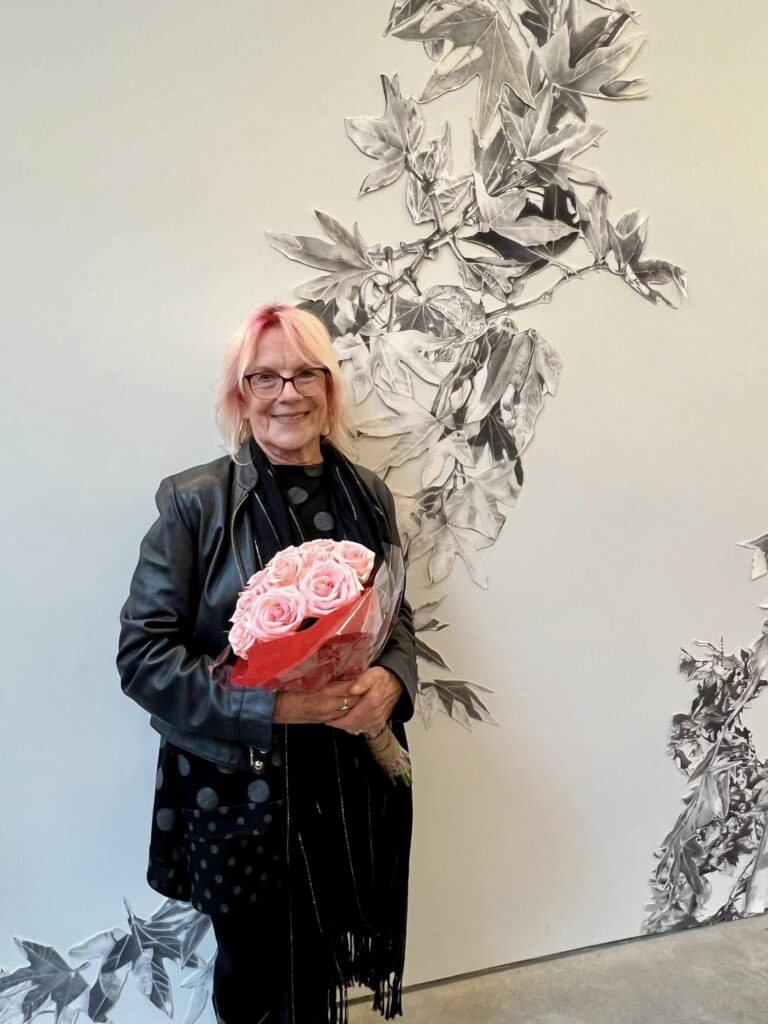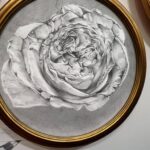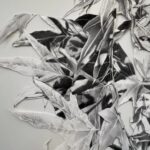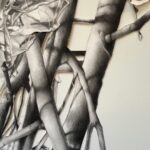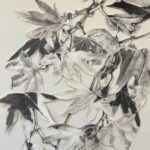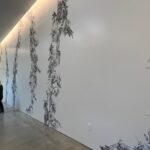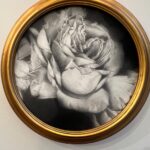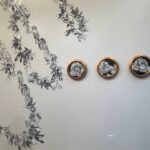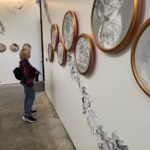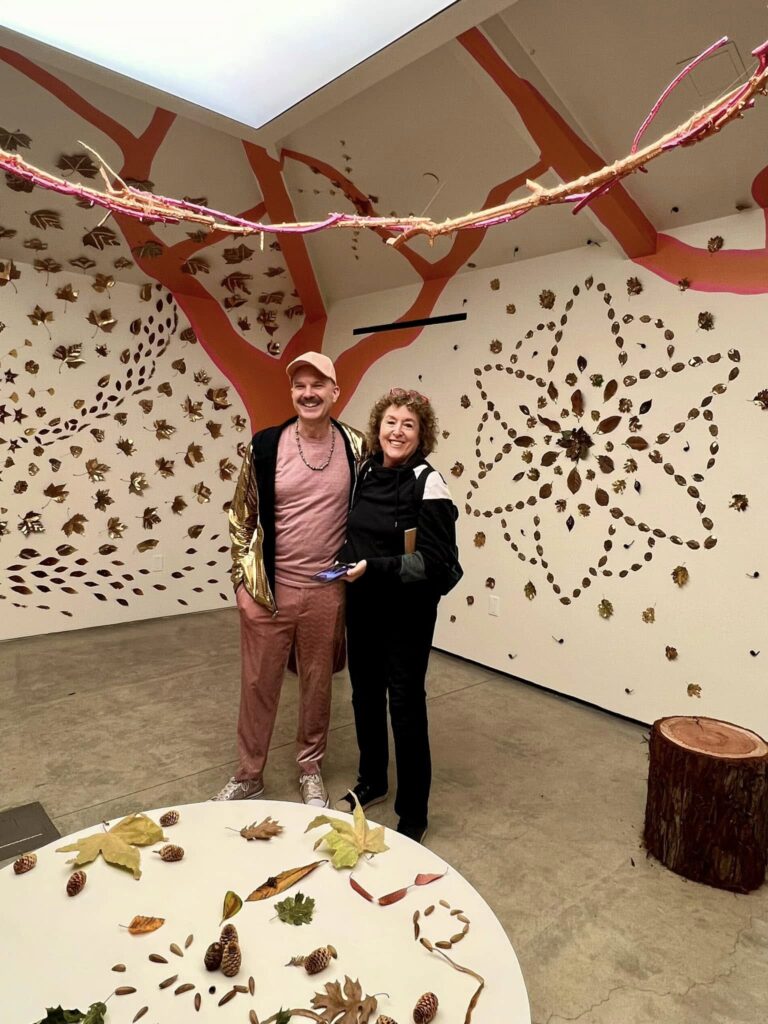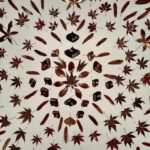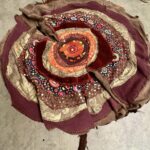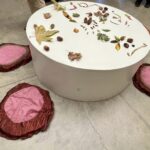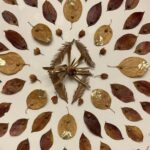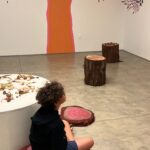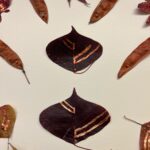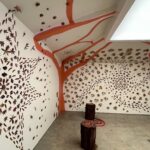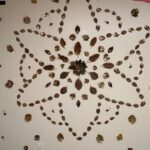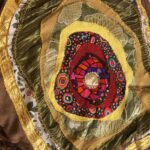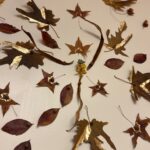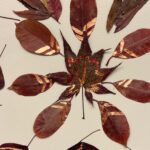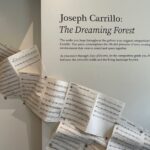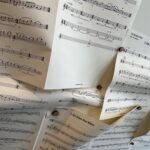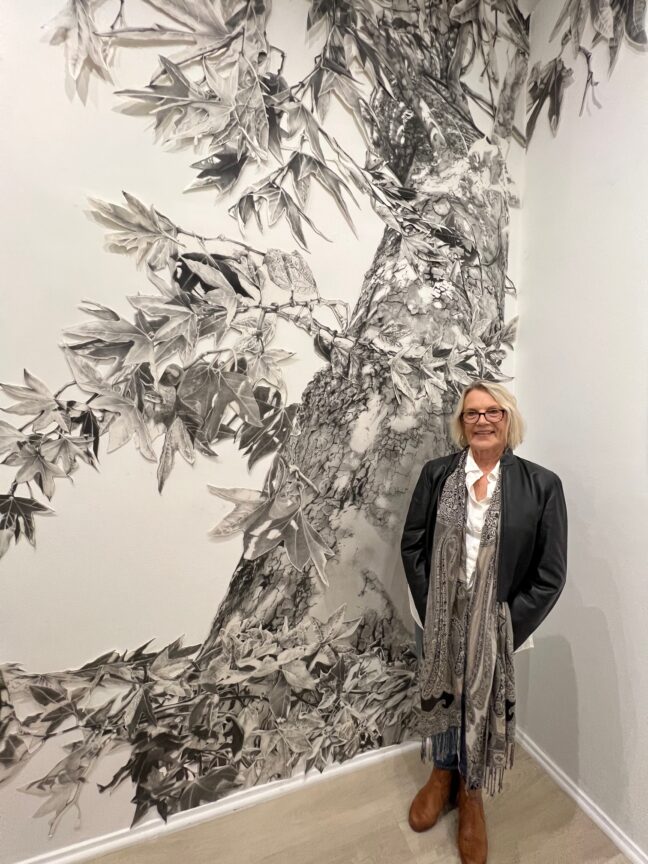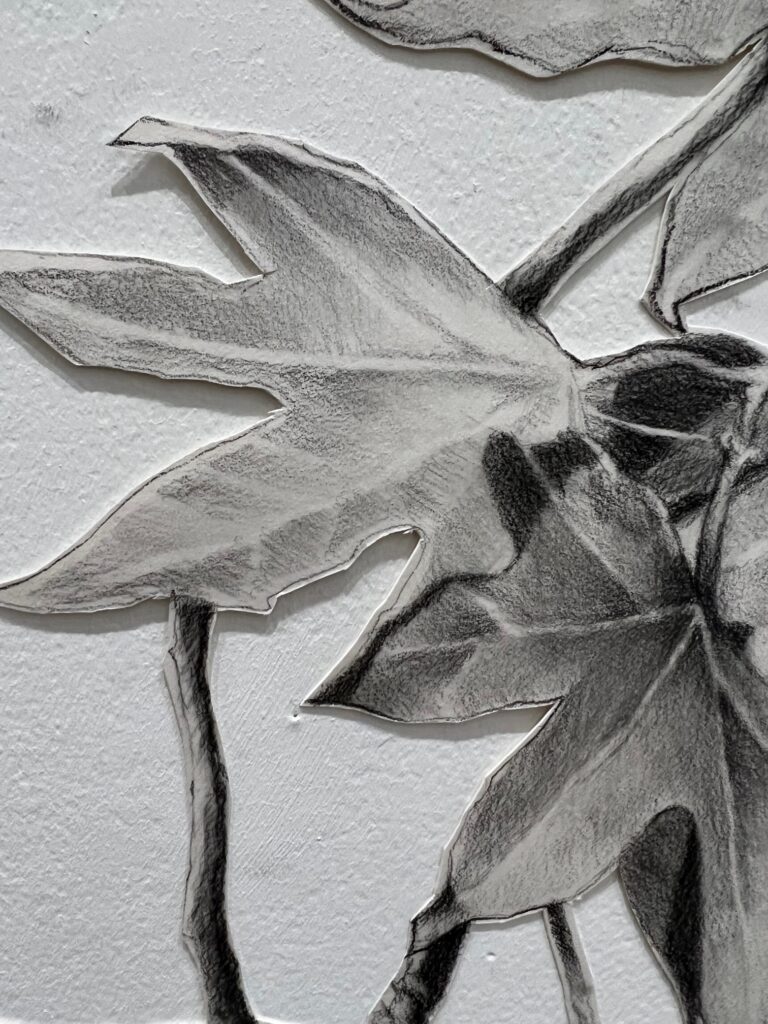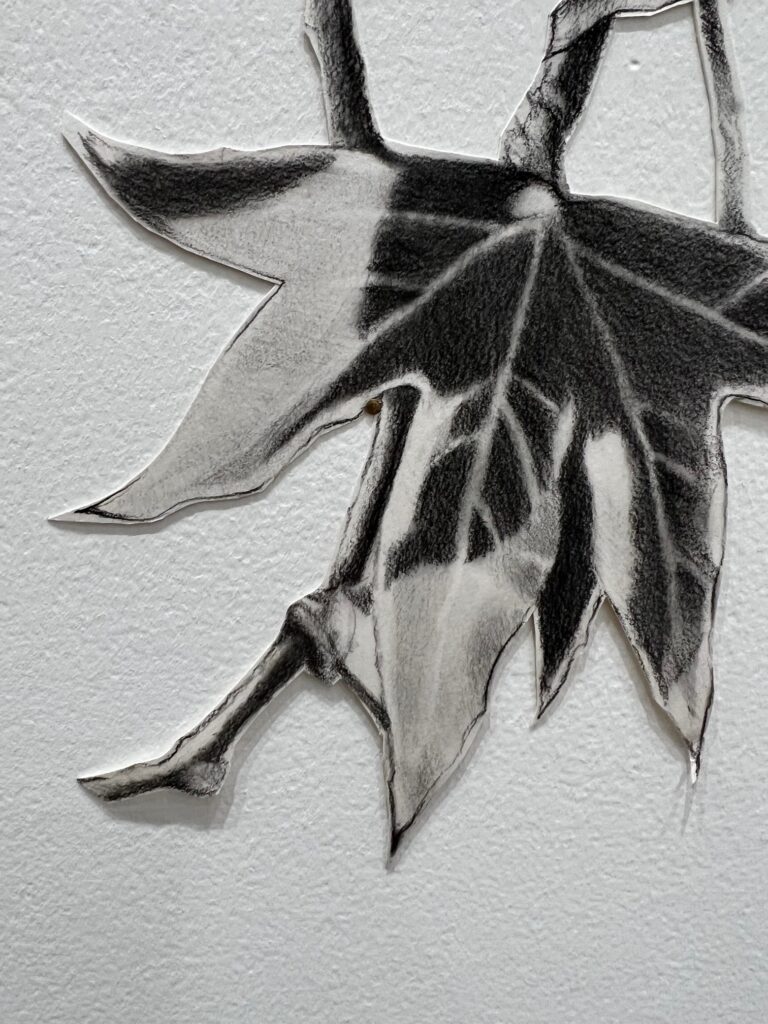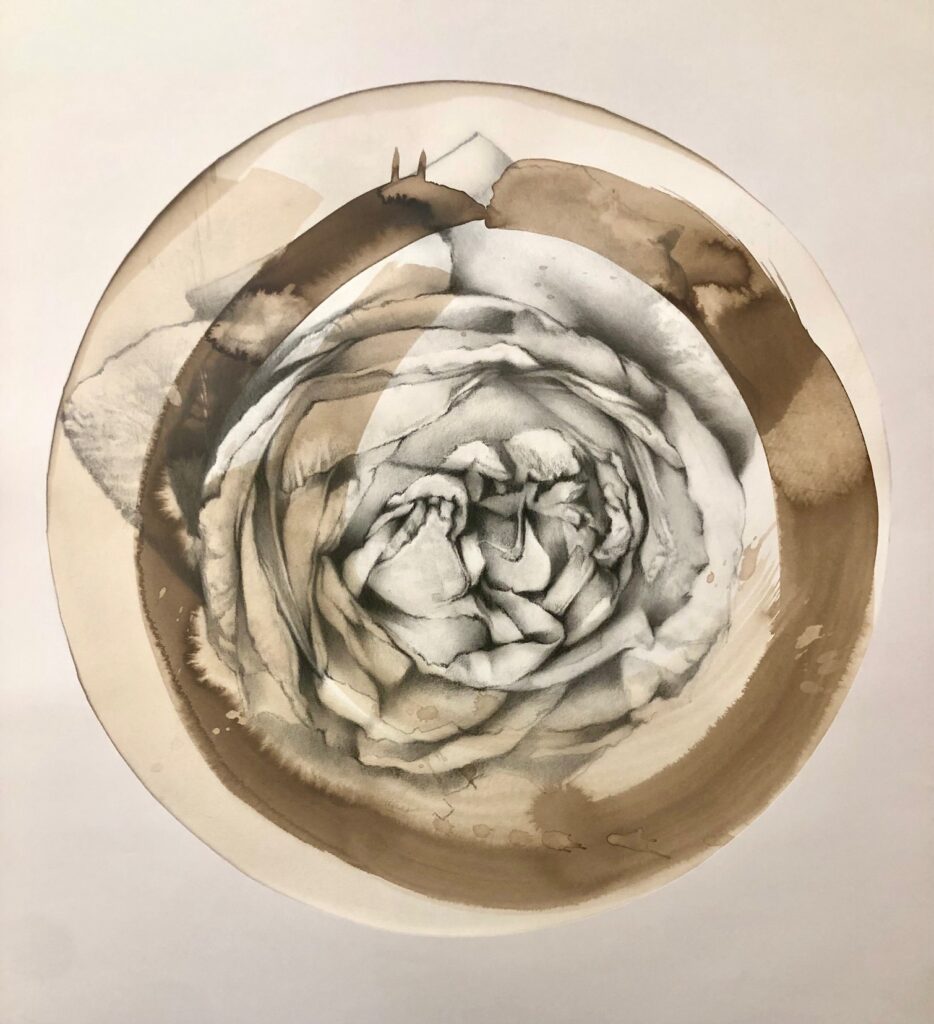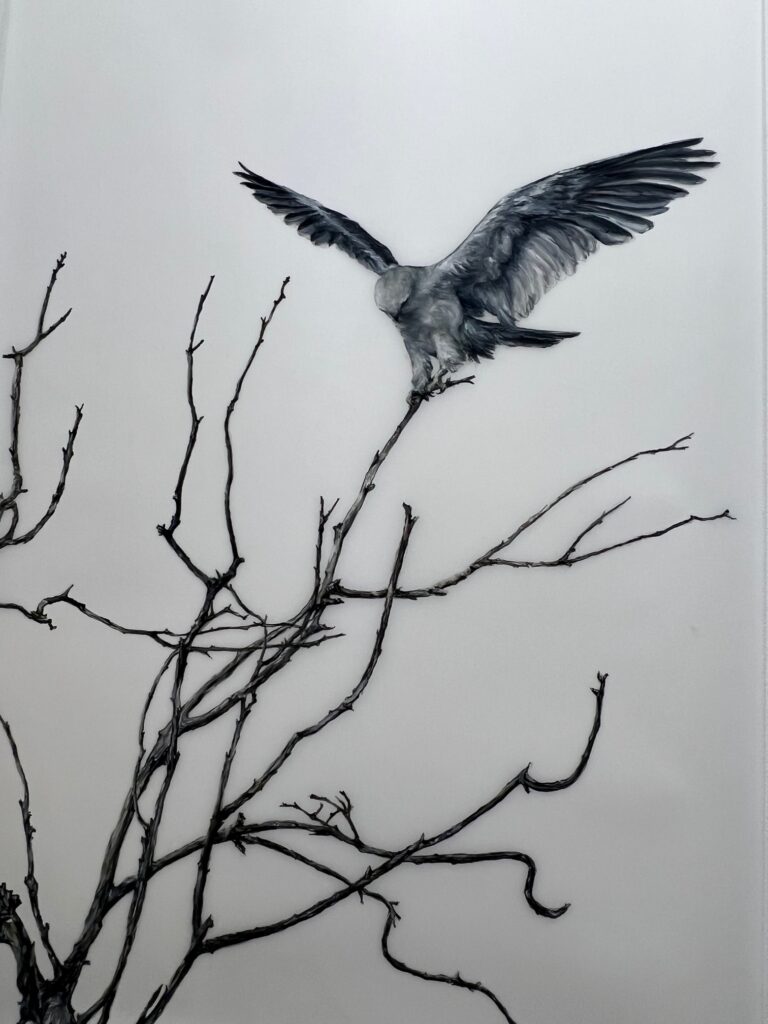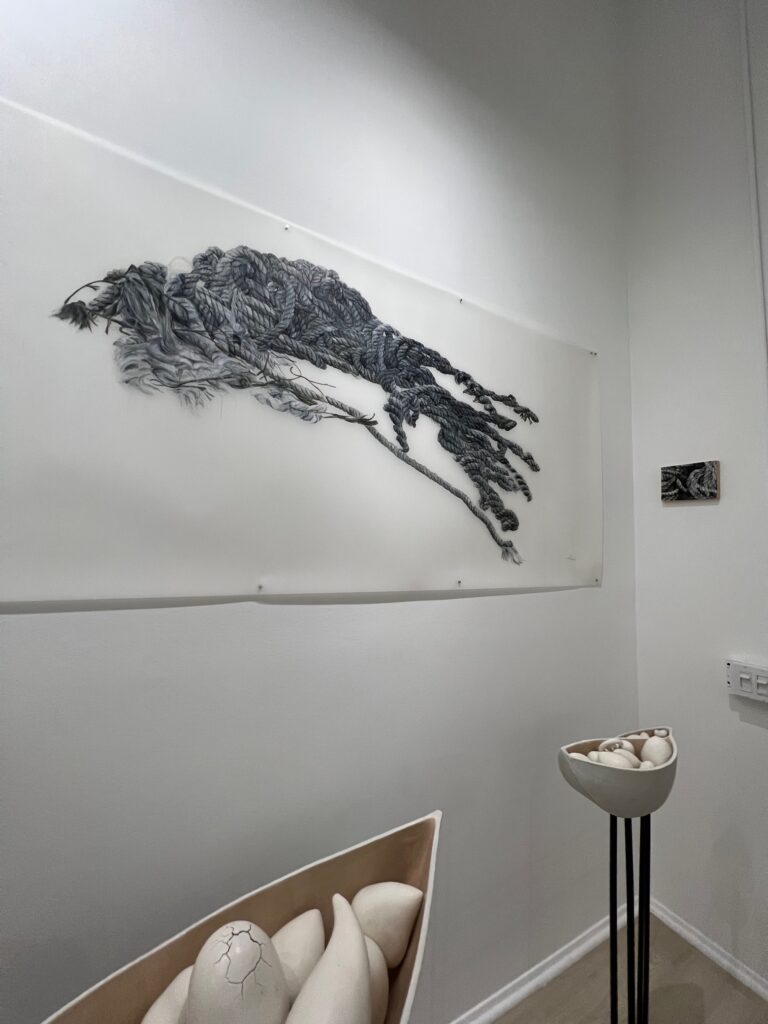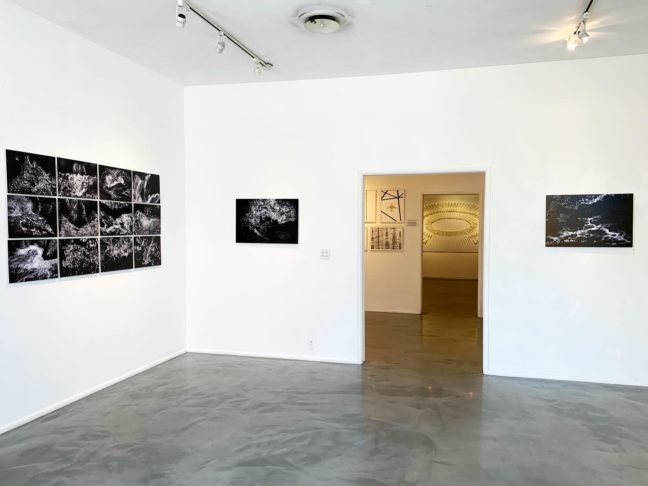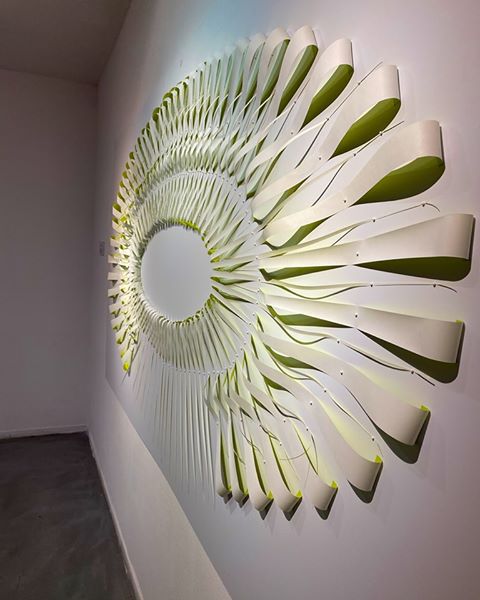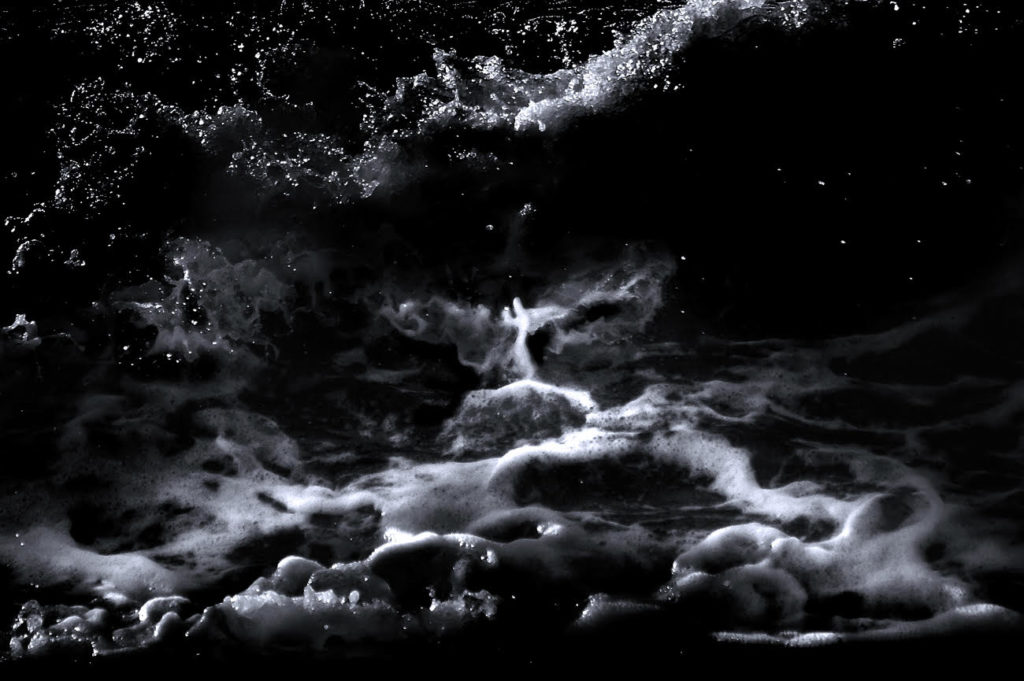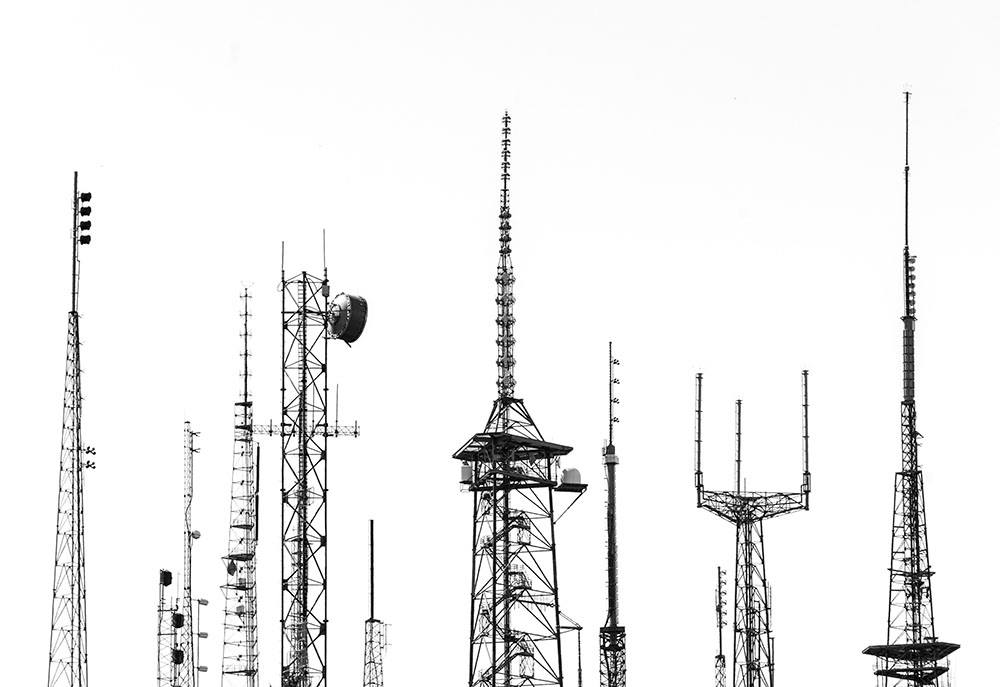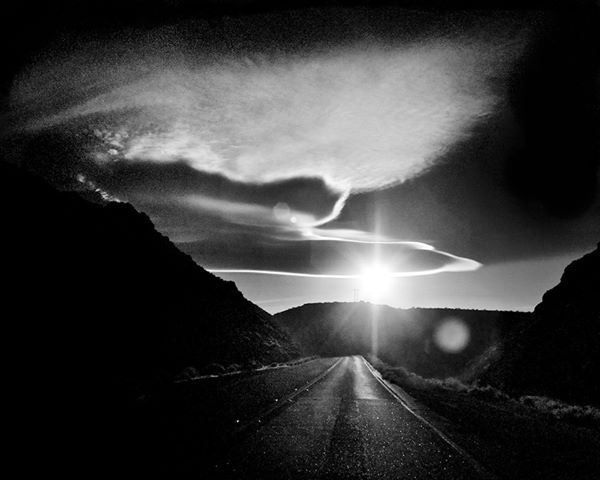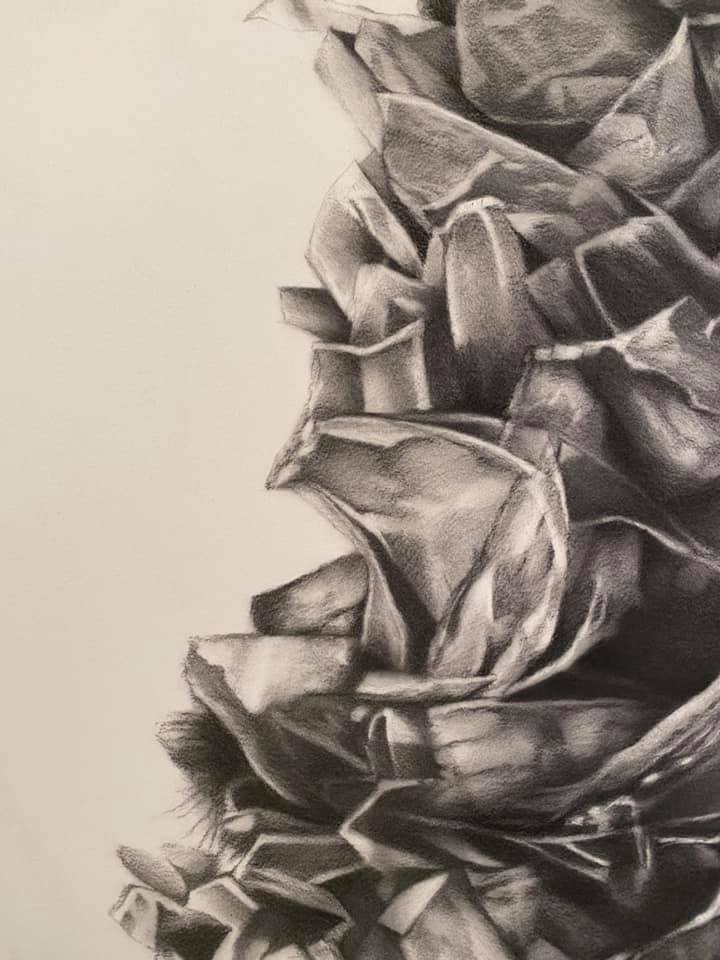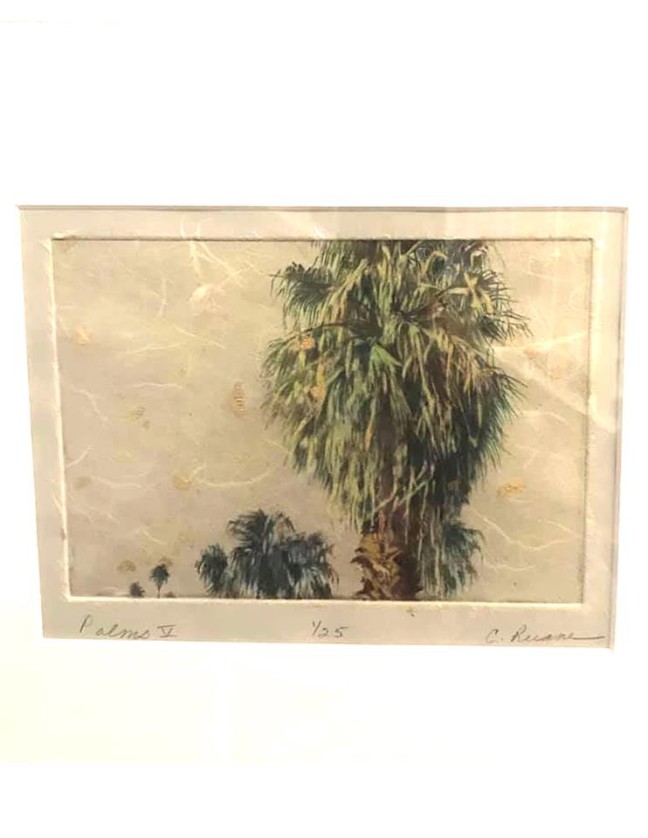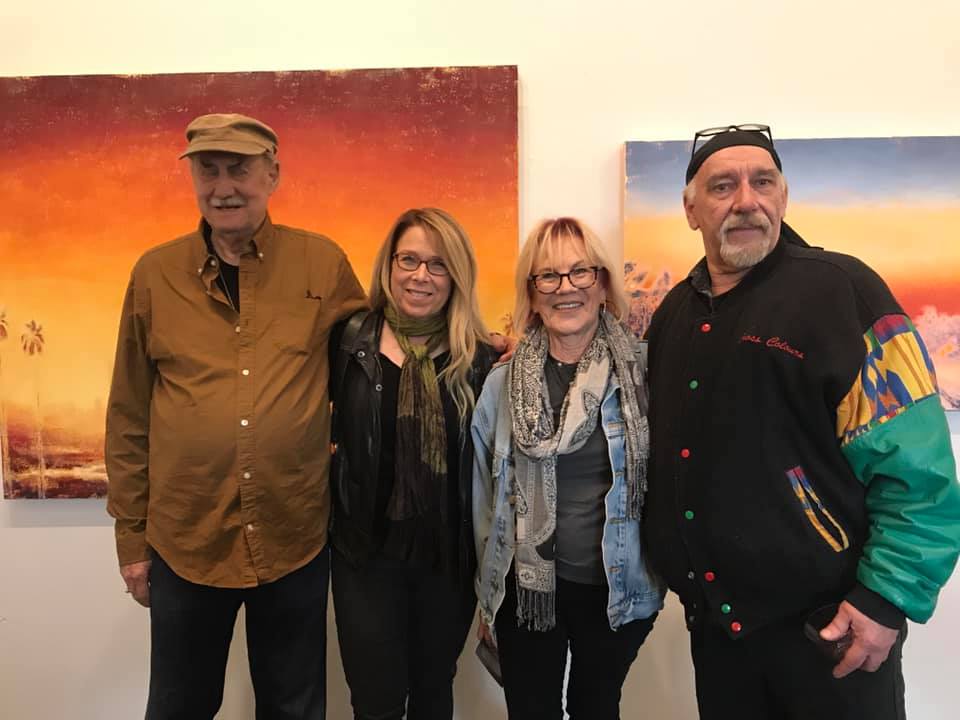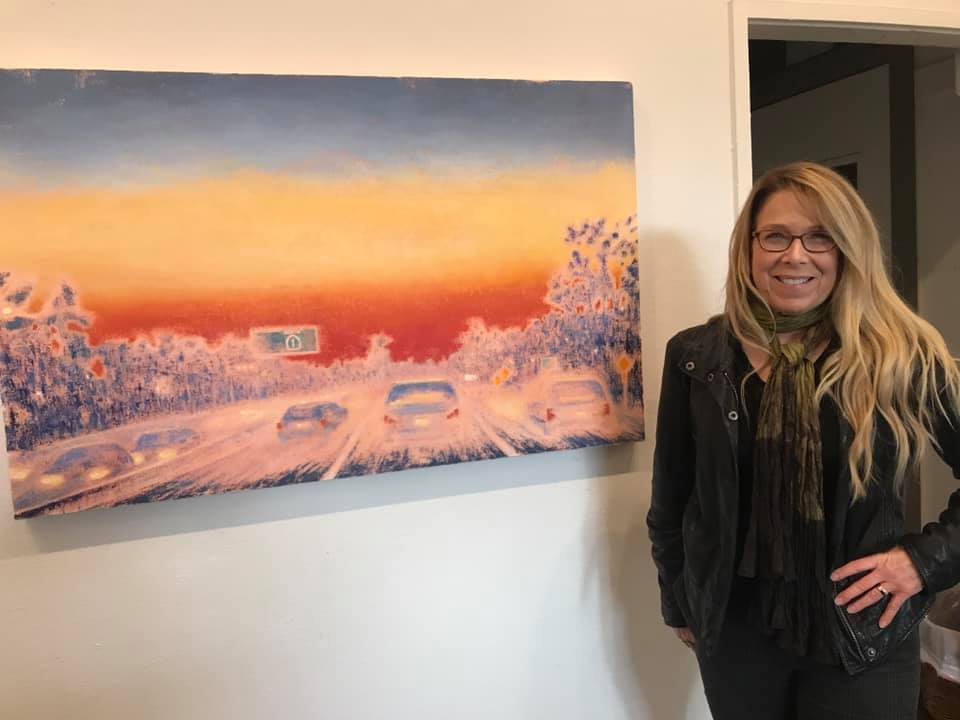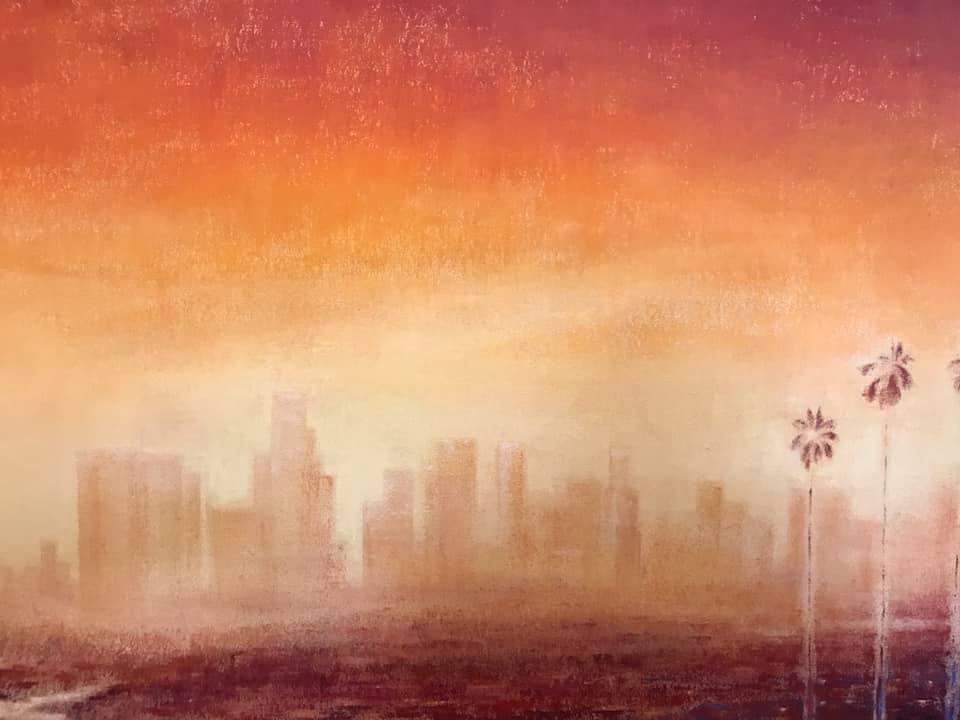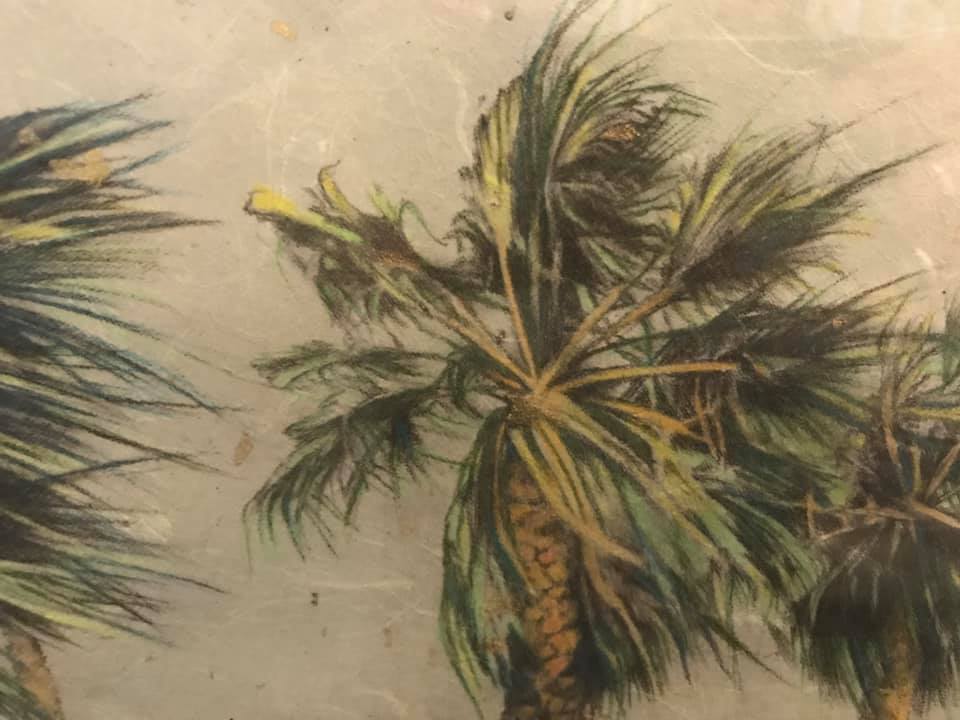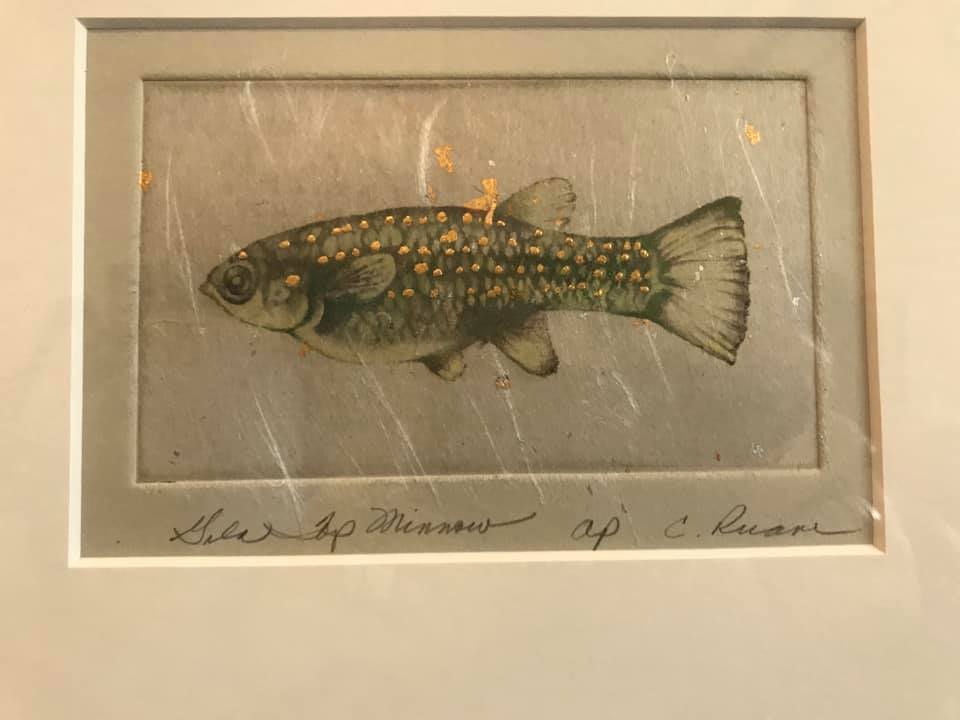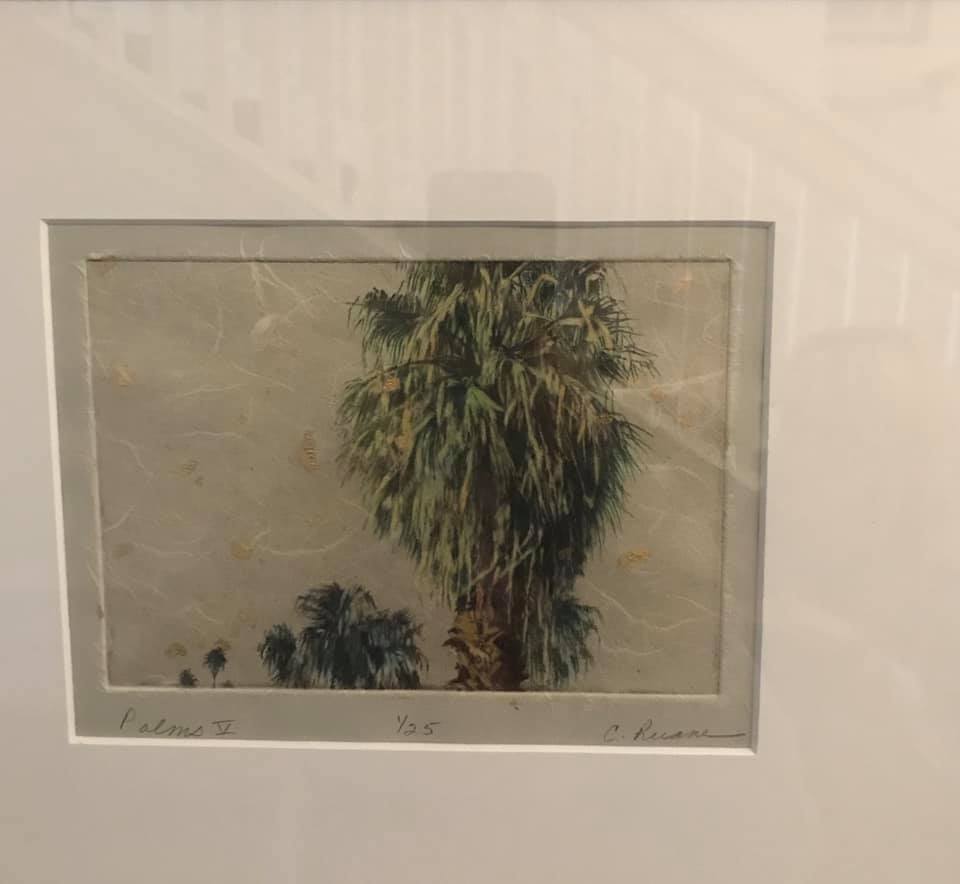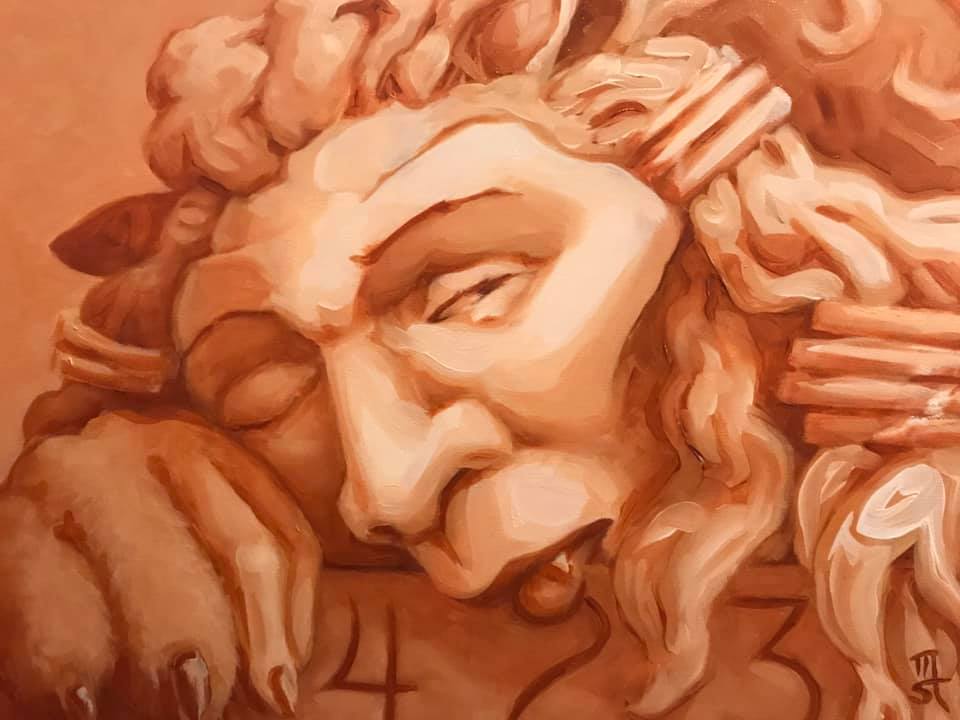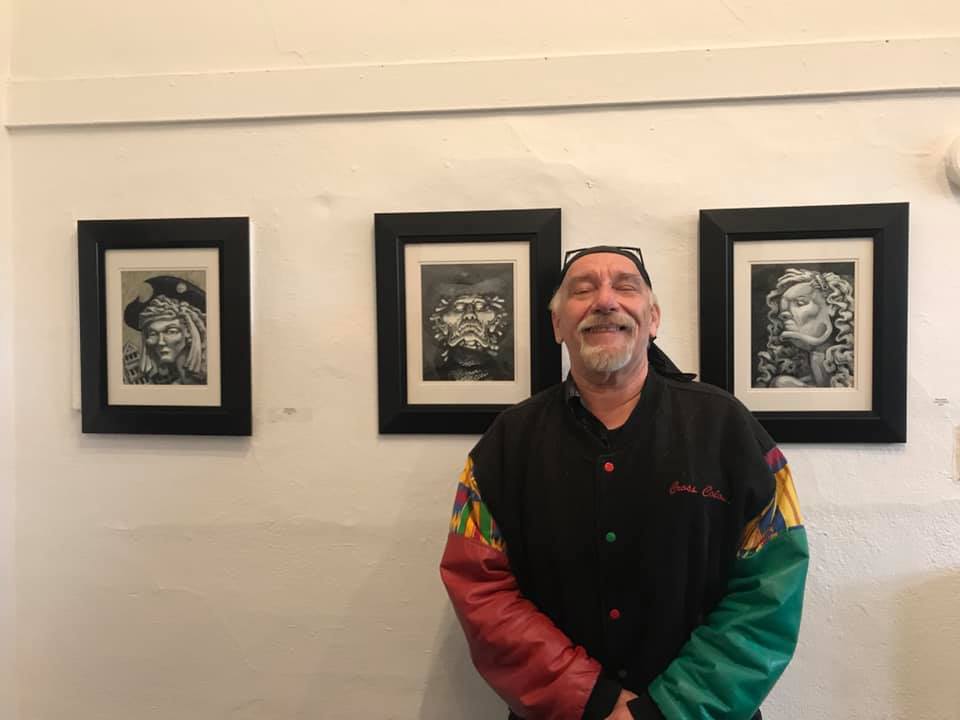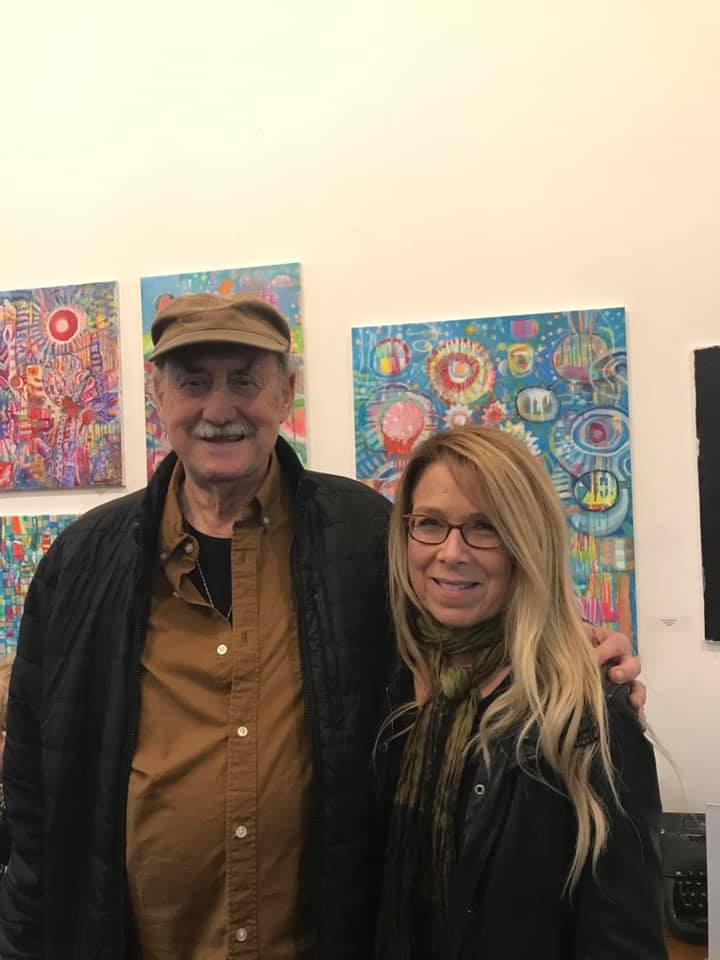Days of Reverie, carefully curated by Vojislav Radovanovic, is a compelling exhibit that brings together four visual artists who work in different mediums – drawing, painting, sculpture and installation, along with one composer. All these artists lift the viewer out of the ordinary “here and now” existence into an extraordinary meditative and otherworldly state of mind. The four visual artists – Catherine Ruane, Jill Sykes, Jason Jenn and Debbie Korbel — were tasked with creating new work for the exhibit at Stuart Haaga Gallery at Descanso Gardens using actual materials sourced from the gardens or inspired by the gardens, while musician and composer Joseph Carrillo was asked to create the soundscape that accompanies the exhibition. The results are astounding, and though each room is decidedly different from the next, each artist seems to work at the threshold of the real and the artificial with surprising synchronicity of color and materials.
Debbie Korbel’s two sculptural pieces are the only ones that are outside the gallery and immediately greet the viewer. Outdoors, her bare trees, painted a ghostly, wintry white, stripped bare of their original colors and foliage, speak to a mystical winter’s tale. The two trees in the front are populated with Korbel’s sculpted Lazuli Bunting Songbirds, some caring for their eggs in a nest, others just perched on a branch.
The other trees become wish trees where viewers are encouraged to write their intentions and messages on paper tags and affix them to the branches, thereby repopulating the bare trees with leaves of desire. This concept was popularized by Yoko Ono in 1996. She modernized a Japanese custom started in the 17th century of writing wishes on tanzaku (small strips of paper) and attaching them to bamboo trees.
Debbie Korbel
Visible through the glass window is Korbel’s striking life-like and full -sized mixed-media deer mule, looking alert yet relaxed in a painted nightscape that references natural history dioramas. The flowers and plants entwined around the antlers speak to rejuvenation amid winter’s thaw a theme echoed throughout the exhibition. A beautiful short poem is written on the wall she illustrated behind the deer.
Jill Sykes
Inside we enter the room filled with Jill Sykes’ radiant botanical paintings of roses, poppies, calla lilies and agapanthus which all grow in the gardens here. If Korbel’s work harkens to a wintry thaw, then Sykes work simulates spring with new growth visible on slender branches.
Sykes’ plants and flowers are undifferentiated in color and instead are recognizable by their flattened outlines and their shape. All parts of the plant, leaf, flower and stem are the same color, as if a shadowy presence seen on a wall, ground, scrim or window shade. Paradoxically, her specific yet highly abstracted imagery captures the very essence of the flowers, distilling the image like intimate poetry. In the five large gold leafed works, Sykes delineates flowers with delicate, white lines over a faint grid of gold. Like Byzantine painters who generously used gold leaf to symbolize divinity and otherworldliness, Sykes’s luminous paintings, highlighted against the pale pink wall, glow magically while inviting quiet contemplation.
Catherine Ruane
While Sykes’s luminous paintings are hushed and meditative, Catherine Ruane’s dramatic site-specific installation is operatic in scale and concept. Composed of painstakingly detailed and lovingly rendered Sycamore leaves and branches, Ruane’s achromatic pencil and charcoal drawings are cut out and rearranged to soar around the gallery. Looping and swooping gracefully, their rich robust darks are highlighted against the white of the gallery walls, creating wonderful negative spaces. Included in the installation are clusters of realistic rose drawings – portraits if you will.
Historically, roses are a potent symbol of beauty, divine love and spiritual enlightenment, which is the subtext of all the work on display. Each rose drawing is in a round gold frame that is painted red on the back, casting a surprising pink almost neon aura on the wall. These are grouped close together as they would be in a rose garden. This series of drawings became a sort of unintentional memento mori as the very roses Ruane was drawing were shortly torn out. Unbeknownst to her, they had come to the end of their twenty-five year cycle – once more reminding us that there is a season for all things.
Jason Jenn, left, with author Nancy Kay Turner
Autumn is the time when deciduous trees shed their leaves. Depending on one’s geographic location, the red, orange, yellow colors which the leaves turn are truly spectacular. Jason Jenn began sourcing his materials of fallen leaves at Descanso Gardens for his installation a year before the exhibit opened. The vast collection of organic materials employed is impressive in scale, shape, variety and color, highlighting the infinite visual complexity of nature.
Jenn treats the leaves which he gathers so that they can be handled without becoming brittle, thereby allowing him to paint and gild them transforming the multitude of leaves into glittery, golden-hued mandalas that ring four walls. Mandalas, a Buddhist 4th century tradition, represent dreamers in search of spiritual enlightenment. Mandalas, sacred circles, are thought to transform suffering into joy, healing the world. Jenn’s immersive installation is the most interactive with a large round low table filled with plants that visitors, mostly children can sit around (handmade pillows are provided) and create their own versions of the art. There are pink painted trees at the corners of the room, their branches reaching overhead, creating a cozy, womb-like feeling of protection. Stumps from fallen trees ring the installation covered with festive tree ring pillows stitched by Jenn. This continues Jenn’s longstanding interest in the healing power of art.
Joseph Carrillo provides not only the soundscape that accompanies the exhibition which is his own composition, but also provides the score of the piece. He has artfully arranged the sheets of paper (also called leaves) letting them cascade and slide down like a waterfall of musical notes. Those who read music can engage with the visual notation while also listening to the score that is played by Carrillo himself and a group of musicians he generously acknowledges. This exhibit is a balm for the soul as it addresses universal truths about life, death, resurrection and offers valuable lessons learned from listening to and valuing Mother nature.
- Nancy Kay Turner; photos by Nancy Kay Turner and Genie Davis
